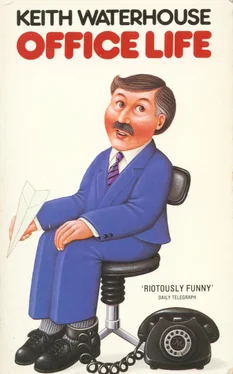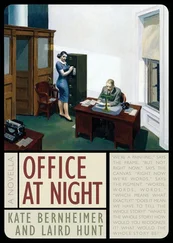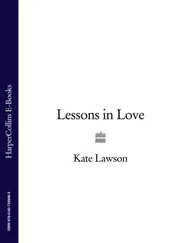'Too bleedin true. You woulden chuckle.' This endorsement from Vaart seemed to have the effect of bringing Ferrier's discourse to a halt. No one else spoke. Gryce sensed that having given their explanation to him, not that he was quite sure he understood what they were up to, they now expected his explanation to them.
He cleared his throat, hoping that the little coughing noises he was making didn't make him sound nervous. 'I must say I was very surprised to discover the premises still standing, quite by chance. That's really why I thought I'd have a look around — I'd understood quite definitely from Grant-Peignton that the building had been demolished.'
'Our friend Fart's doing,' chuckled Copeland.
'Marllous what a little rumour'll do, ennit?' said Vaart, tapping the side of his nose in what Gryce thought was a vulgar manner. It would be cockney body-language, he supposed, for low cunning.
Ferrier, making it crystal clear that if there was any tale to be told he would be the one to do the telling, picked up the reins of his narrative with ease.
'As you know, Albion Printeries was absorbed by British Albion and closed down as soon as that monstrosity in Gravechurch Street was completed. It was scheduled for demolition, I know that for a fact: the statutory notice was hung out there on the gates for months. I kept an eye on the place, only because there's a riverside pub nearby I'd grown fond of and I used to pop over at lunch-time rather than face that dreadful Buttery.'
Ah, yes: the Crown Inn that would be, as spoken of by Parsloe. Gryce wondered whether to mention that he'd heard it had a nice patio where one could drink outside. He decided that it would be an irrelevant interjection, as would any comment about the Buttery being not as bad as all that, speaking as one found, in fact quite good value.
'However, the demolition squad never arrived, that goes without saying. I asked one or two questions up and down Grain Yard, it turned out the council had dropped their redevelopment plans. Shortage of cash. So I waited for the building to be re-let, but that didn't happen either. By this time it was beginning to dawn on some of us who we were really working for over at so-called British Albion, and I began to wonder if they'd simply forgotten about this place. Just lost it in the books, such things do happen, especially when Government's involved. I got some keys made, had a look inside, and of course it was exactly as we'd left it. The Wharfedale, the Linotypes, binding machine, everything — thousands and thousands of pounds' worth of plant that could have been sold, just left to rust. That confirmed it: they must have forgotten. I'll tell you what it is, Mr Gryce. Every piece of paper to do with Albion Printeries is locked away in a big brown envelope in that basement Files Depository across the river, and no one's going to dig it out again in a million years.'
'So ere we are, ent we?' Vaart gave Gryce one of his winks, delighted either with his own succinct summing-up on the situation or with the situation itself.
'So here you are,' echoed Gryce. There seemed to be a need for him to add something to that so he said: 'Here indeed you all are.' Ferrier took that as a cue to continue.
'You can imagine how I felt, a printer working as a clerk, and all the tools of my trade lying idle in a building that nobody wanted. What would you have done, Mr Gryce?'
Gryce shook his head politely but did not answer. What he would have done would have been to make an anecdote of it, pointing at the incompetence of management. 'Would you credit it?' he would have gone round asking. But he knew that such a reply would not suit Ferrier.
'I talked to Jack Vaart and he felt the same way; so did Douglas, one of the commissionaires you see out there — although he'd only been an odd-job man here he had ink in his veins, he loved the smell of it. Then, very discreetly, over the months, we sounded out the others — I mean those who'd gone over to British Albion instead of taking redundancy. They weren't interested: they had a desk to sit behind or a broom to lean on and a pension to look forward to, they'd been craftsmen, some of them, but they'd lost interest. I suppose if they'd known the press was still here, aching to be used, they might have taken a different view, but we couldn't risk telling them. We began to look around in other directions, watching for those who were disgusted at what was happening at British Albion, and then mentioning vaguely that we were thinking of starting up a little printing business one of these days. Mr Copeland here was our first recruit.'
'The point is that I was already taking a prinking course three lights a week out of sheer boredom,' explained Copeland with a convert's eagerness. 'I was sick to the back teeth of British Albumen and the chance of making a living out of what had been a hobby came as a cod's end.'
'We were all sick to the back teeth, dear,' put in Mrs Rashman. 'I'm telling you, as soon as Jack Vaart started dropping hints about this place I said count me in, dear, I don't care what I do, whether it's typing or cleaning out the lavs, just so long as it gets me out of this bloody British Albion, and that's swearing.'
In turn, like reformed alcoholics at a temperance rally, the others gave their testimony. Mr Cooley of Stationery Stores had always had a hankering to do something with his hands: his contact with Albion Printeries had also led him into contact with Mrs Rashman so he had been presented with a double bounty. He looked to Gryce as if he was about to kiss the hem of Ferrier's dust-coat. Mr Hakim had been signed on after asking Vaart's advice on how much he would require to set up an Urdu press in Leicester, from which he believed a fortune could be made. The three one-armed commissionaires, still toiling in their trench out on the works floor, did not give evidence but Gryce was told that Douglas had recruited Thelma's uncle from the Files Depository and his sick-leave and holiday relief, their joint belief being that British Albion was a scroungers' paradise. The Penney twins had joined originally for a lark; it was a toss-up for a while whether they threw in their lot with the Albion Printeries or the Albion Players.
'You chose well,' commented Ferrier. 'You'd quickly have become bored with that bunch of amateur detectives.'
'Lorrer wankers,' said Vaart, and made as if to spit on the floor.
'But you're a member,' Gryce felt justified in pointing out.
'Gorrer keep an eye on em, ent we? Don do no arm to know woss goin on. I'm tellinya, when I go to them borin meetins, thass my good deed for the day.'
Only Thelma had not so far spoken. She was smirking at one speaker after the other as if they were telling jokes. Gryce occasionally wondered if the girl was all there.
Copeland must have caught his glance in her direction. 'Thelma,' he said, 'is by way of being our musket.' He would mean mascot, if he meant anything. 'She was a damson in distress and we rescued her from the dragon, did we not, Thelma?'
She giggled, going bright red while doing so.
'After what you and she saw at British Albion,' said Ferrier, letting Gryce know for the first time that he knew more about him than he'd so far let on, 'we didn't think it safe for her to remain there. Fortunately the commissionaire who caught her was our friend Douglas, otherwise who knows what might have happened? You've presumably told the Albion Players people about what you saw?'
'Yes, there's a special meeting this evening.'
'I shall be very interested to hear what transpires at it,' said Ferrier, speaking to Vaart, who nodded. 'The balloon has gone up, that's my opinion.'
For someone who had left British Albion eighteen months ago, Ferrier seemed very well-informed about its doings. But Gryce found that he trusted his judgement. 'What do you think will happen, at all?'
Читать дальше












